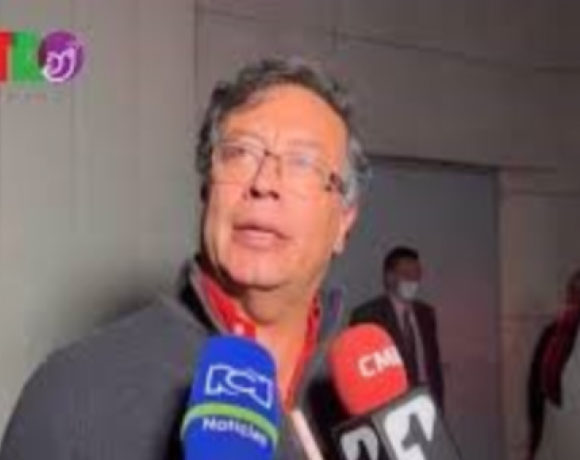Ex-FARC, Criminal Miners Kill Social Leaders; Cauca Replaces Antioquia as Main Center of Violence; President Duque Responding

Certain politically biased non-government organizations (NGOs), several left-wing politicos, some naïve blogs and fake-news outfits in Colombia repeatedly and overwhelmingly blame former President Alvaro Uribe, his political successors and the Colombian army for murders of various social activists following the 2016 “peace” agreement between the Colombian government and the FARC narco-communist terrorist group.
But in nearly all cases, these murders are in fact caused by various narco-gangster groups and criminal miners — including hundreds of “dissident” members of FARC that rejected the “peace” deal.
As noted in a new report by the nonpartisan, independent InsightCrime bulletin, “while Cauca [rather than Antioquia or Medellin] has seen the worst of the violence against local community leaders in 2019, the motives for these killings reflect the wider reasons for such targeted violence across Colombia.
“According to the organization Somos Defensores, one of the main reasons social leaders are targeted is due to their participation in the implementation of the 2016 peace agreement with the Revolutionary Armed Forces of Colombia (Fuerzas Armadas Revolucionarias de Colombia – FARC).
“Social leaders can also run afoul of criminal groups when trying to stem the tide of illegal economies within their communities. Many victims were involved in activities related to coca crop substitution, the creation of legal jobs, or land redistribution, all efforts which can curtail drug production and help rural residents find sustainable alternatives,” the bulletin noted.
Similarly, according to the Institute for Development and Peace Studies (Instituto de Estudios para el Desarrollo y la Paz – INDEPAZ), “other risk factors contributing to violence against social leaders include denunciations of armed actors, accusations of mismanagement of public funds by state entities, and claims to the right to use natural resources,” InsightCrime noted.
“The problems facing social leaders in Cauca are exacerbated by the department’s crucial location as a drug trafficking corridor. According to the latest report by the United Nations Office on Drugs and Crime (UNODC), around 17,000 hectares of coca were produced in this department alone in 2018.
“Cauca has therefore become hotly contested by a range of criminal groups, seeking an advantage there, including the National Liberation Army (Ejército de Liberación Nacional – ELN), the Popular Liberation Army (Ejército Popular de Liberación – EPL) and at least five dissident fronts of the FARC,” the report noted.
President Duque Steps-Up Enforcement
Meanwhile, on a related front, Colombia President Ivan Duque announced January 9 a further crackdown on these violent actors that are targeting social leaders.
For full-year 2019, “we had a reduction in the killings of social leaders of close to 25%,” Duque noted, citing the latest Colombia Attorney General’s report. But even that reduction isn’t nearly sufficient, he added.
Since taking-over in July 2018 (following the landslide election of President Duque), the Attorney General’s office has stepped-up attacks on criminal organizations and will expand these efforts in 2020, the president added.
“Thanks to the clarifications made by the Attorney General’s office regarding the murders of social leaders, ex-combatants and human rights defenders, it has been determined that those behind these crimes are [in fact] drug traffickers, illegal miners and organized armed groups,” Duque noted.
















